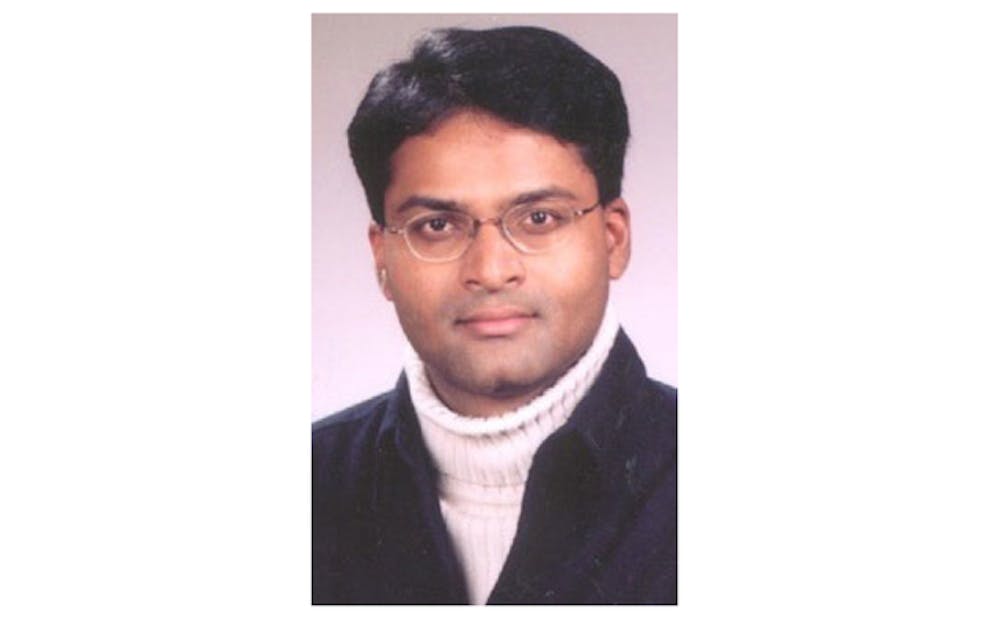Despite Duke's recent settlement with the families of patients affected by clinical trials based on discredited cancer researcher Anil Potti's findings, the director of the National Center for Professional and Research Ethics says the University still has several questions to answer.
In a recent interview with The Cancer Letter—a national cancer research publication—scientific misconduct expert C.K. Gunsalus discussed the recent settlement with Paul Goldberg, Trinity '81 and editor and publisher of The Cancer Letter. Gunsalus explained that even though there are no more claims pending related to Potti's research, Duke should provide additional information to explain how it treated patients in clinical trials based on falsified cancer research.
Potti falsified data in his research that made it seem like he could use models to customize a patient's cancer treatment—the clinical trials based on his work harmed several of the 117 patients that signed up and many of his papers were eventually retracted.
"Settling the lawsuit does nothing to address questions about how and why things went so tragically wrong and what institutional changes have or are being made going forward," Gunsalus told Goldberg. "Fundamental questions of institutional integrity are raised by the failures of their internal procedures of education, research and conflicts of interest."
Michael Schoenfeld, vice president for public affairs and government relations, declined to comment on The Cancer Letter's article featuring the conversation between Gunsalus and Goldberg in an email Monday.
After Potti claimed he could use gene-based models to link a patient's cancer to the most effective chemotherapy in 2006, he published several papers with research mentor Joseph Nevins and three clinical trials based on his findings began. It was not until 2009, after biostatisticians Keith Baggerly and Kevin Coombes at MD Anderson Cancer Center in Houston published concerns about not being able to replicate the results, that Duke began investigating the clinical trials.
In 2010, after The Cancer Letter reported that Potti had also falsified information on his resume, the Institute of Medicine began an investigation and Duke shut down the trials, which involved more than 100 patients. Potti resigned shortly thereafter and had several of his papers retracted in the following years. An investigation by the Institute of Medicine noted several issues with Duke's handling of the case in a 2012 report.
The case resurfaced earlier this year when The Cancer Letter published a report alleging that Duke professors tried to quiet a whistleblower who came forward in 2008.
According to the report, third-year medical student Bradford Perez—who was working in Potti's lab—was told when he expressed concerns about possible misconduct and falsification of data in Potti's research that pressing forward would result in a loss of funding for his own research and an internal investigation. The Cancer Letter report also stated that Nevins—formerly a Barbara Levine Professor of breast cancer genomics—urged Perez not to come forward after Perez discussed his concerns with several associate deans at the School of Medicine.
Based on emails it obtained, The Cancer Letter reported that Dr. Sally Kornbluth, now provost and at the time vice dean for research at the School of Medicine, and Dr. Victor Dzau, former chancellor of Duke University Health System, were aware that Perez had come forward with concerns about the research.
The many layers to the case make Gunsalus—who wrote a guest column in The Cancer Letter in January exploring it in great detail—confident that the University should come forward with more public information about its handling of the situation.
"Bottom line: the settlements do not resolve Duke’s responsibilities for the multiple individual and systemic failures evident in this situation," Gunsalus said. "Duke owes information and actions to its patients, the research community and to its medical professionals, students and faculty."
Gunsalus, who according to her website is a consultant and runs a workshop on survival skills for academic administrators, is also confident that the new details about Perez's attempt to bring concerns to administration detailed in a document titled "Research Concerns" justify a comprehensive investigation that would benefit many parties involved.
"So far, the available record doesn’t show much that reflects well on those with whom [Perez] interacted at the University. There are serious open questions about what originally happened; about who knew what, and when; and why the institutional response appears to have failed at so many junctures," Gunsalus said. "An objective and thorough investigation is required. That kind of investigation should be sought and welcomed by those who were working within the system to do the right thing."
Another topic covered by Gunsalus and Goldberg during their conversation was the 2012 Omics report published by the IOM, which now contains many statements from administration that do not match Perez's story.
In the report, the University makes no mention of Perez's concerns, with Kornbluth stating in 2011 that "members of the laboratory did ultimately come forward with concerns about the research, but only after the University began an investigation."
"Reading carefully, all of the public comments by Duke seem to focus on improving their 'whistleblowing channels,'" Gunsalus said. "Why was a document labeled 'Research Concerns' raising clear issues relating to research integrity apparently not considered relevant either within Duke or as worthy of reporting to the omics committee?"
Some of the content Gunsalus hopes becomes public could be available in the future, as a misconduct investigation by the Office of Research Integrity—a unit of the Department of Health and Human Services—began in October 2010 and is still in progress.
According to another story published by The Cancer Letter last week, the investigation has the potential to deal with broader issues, including the statement that Duke officials made to the IOM committee about individuals coming forward with concerns regarding Potti's research that does not match Perez's story.
Get The Chronicle straight to your inbox
Signup for our weekly newsletter. Cancel at any time.

